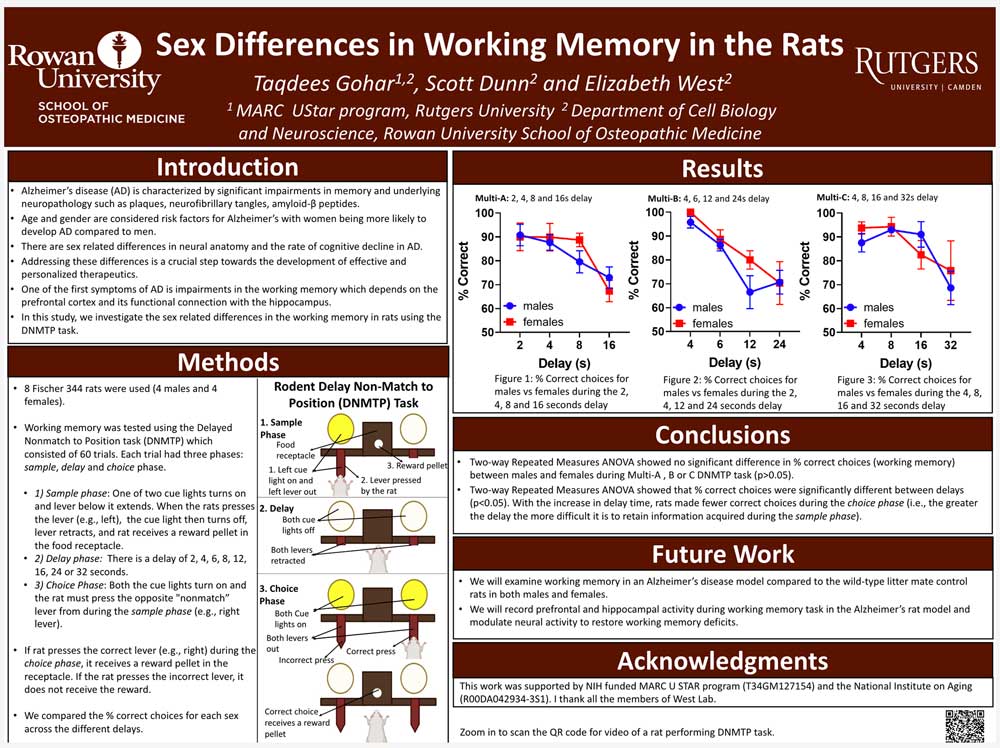Taqdees Gohar ‘22
Major: Biology
Minor: Chemistry
Affiliations: MARC Fellow, Sandy Stewart Undergraduate Research Grant Recipient
Faculty Mentor: Dr. Elizabeth West (Rowan-SOM)
Abstract
Alzheimer’s disease (AD) is characterized by significant impairments in memory and underlying neuropathology such as plaques, neurofibrillary tangles, amyloid-β peptides etc. About 5.8 million people in the US suffer from AD and there is currently no cure for this disease or a way to slow down its progression. One of the very first symptoms observed in patients during the early stages of AD is impaired decision-making. Optimal decision making requires intact working memory which is known to be impaired in AD patients. Working memory depends on the prefrontal cortex (PFC) and the functional connection between prefrontal cortex and hippocampus (HPC). Evidence suggests that PFC dysfunction in AD contributes to the working memory impairments. In our study, we aim to restore the PFC activity and investigate its effect on the working memory. By using the rat model that recapitulates AD pathology, we will explore the effect of restoring neuronal activity in the prelimbic cortex PrL (functional homolog of primate PFC) on the PrL-HPC functional activity linked to the working memory. Identifying the circuits that underlie working memory deficits might help us device treatments or slow down the progression of this debilitating disease. Given the possible sex difference in working memory, and that AD affects women more than men, we first investigated the differences between male and female rats (n=4, each) in their performance during a working memory task. We trained the rats and tested them using a delayed non-match to position (DNMTP) task, a canonical measure of working memory in rats. Our preliminary results indicate no significant differences in working memory between male and female rats.

